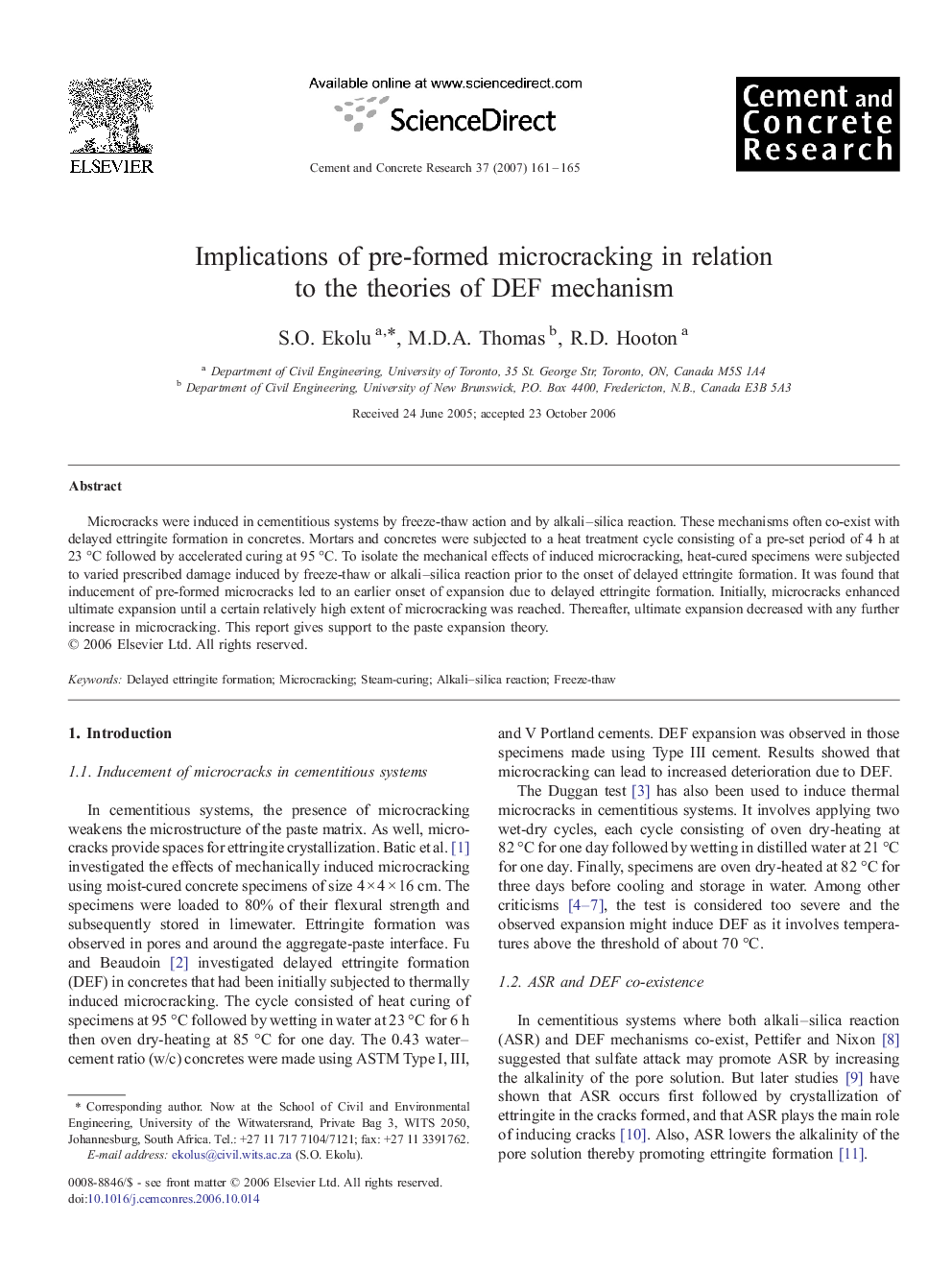| کد مقاله | کد نشریه | سال انتشار | مقاله انگلیسی | نسخه تمام متن |
|---|---|---|---|---|
| 1457851 | 989283 | 2007 | 5 صفحه PDF | دانلود رایگان |

Microcracks were induced in cementitious systems by freeze-thaw action and by alkali–silica reaction. These mechanisms often co-exist with delayed ettringite formation in concretes. Mortars and concretes were subjected to a heat treatment cycle consisting of a pre-set period of 4 h at 23 °C followed by accelerated curing at 95 °C. To isolate the mechanical effects of induced microcracking, heat-cured specimens were subjected to varied prescribed damage induced by freeze-thaw or alkali–silica reaction prior to the onset of delayed ettringite formation. It was found that inducement of pre-formed microcracks led to an earlier onset of expansion due to delayed ettringite formation. Initially, microcracks enhanced ultimate expansion until a certain relatively high extent of microcracking was reached. Thereafter, ultimate expansion decreased with any further increase in microcracking. This report gives support to the paste expansion theory.
Journal: Cement and Concrete Research - Volume 37, Issue 2, February 2007, Pages 161–165